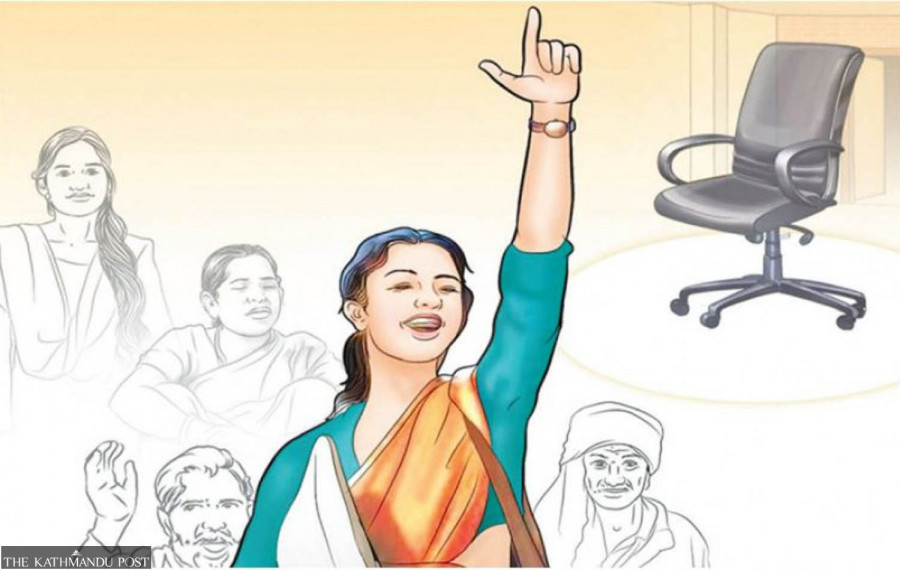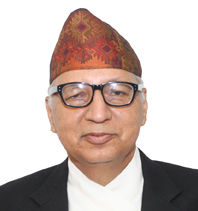Columns
Towards inclusive democracy
Institutions should help in navigating the transformative potential of the constitution.
Ananda Mohan Bhattarai
Inclusive democracy is a multi-dimensional concept informed by the experiences of the 1990s and the first decade of the current millennium. Its theoretical underpinnings and political, social, economic, cultural and ecological implications are impressive. Takis Fotopoulos, a Greek political philosopher, calls inclusive democracy a ‘liberatory project’, but it is too early to conclude whether it is a liberatory project or another experiment that may fail Nepal.
Institutionalising the values of inclusive democracy in the context of the federalisation of Nepal is crucial. The Nepali Constitution is the constitutional roadmap designed by our framers in the Constituent Assembly, and inclusion is at its core. One of the main concerns regarding inclusive democracy is nurturing and promoting the values of inclusive democracy at the Supreme Court.
Different perspectives
From a political perspective, an inclusive state rejects the capture of the state’s power by a handful of social elites who secure more votes in periodic elections. It does not accept the electoral winner taking everything and the losers losing perennially, nor does it accept the construction of equality and non-discrimination only through going to the polling booth and casting votes. We have tried introducing inclusive democracy in the political process by incorporating proportional representation and inclusion in vital state institutions.
Economically, inclusive democracy despises the concentration of economic power in a few hands; instead, it promotes the bottom-up economic process. Inclusive democracy’s social dimension is equally relevant in Nepal since we are yet to be free from evil practices such as untouchability to ensure social justice, promote cultural diversity, and mainstream the economically backward and marginalised section.
Environmentally, inclusive democracy does not allow the state to remain oblivious to the environmental challenges and climatic devastation for short-term economic interests and benefits or the advantage of a specific group, especially at the expense of environmental damage and public health. Rejecting the archaic notion of parens patriae, inclusive democracy calls for the state to act as a trustee of nature and work to realise the “ecologically sustainable development” advocated by our constitution.
From a federal perspective, the constitution is a document accommodating the interests and aspirations of people of various manifestations and orientations. It is done in the spirit of co-existence and cooperation, aiming to generate transformative change and prosperity. Nepal’s constitution clearly states that relations between the federation, states and local level shall be based on cooperation, co-existence and coordination. The practical manifestation of these principles in the states’ functioning is a pertinent point of inquiry. There seem to be issues with building cooperation, accepting co-existence, or reinforcing coordination. Problems have cropped up in several areas, such as adjusting public officials, including judges, enacting necessary laws, dividing financial resources, inter-state trade and settling political disputes through inter-state council meetings.
Horizontal and vertical relations
Constitutional and legal disputes have arisen in horizontal and vertical relations among state organs and the roles played by different officeholders. For example, regarding the relationship between the executive and the legislature, the Supreme Court had to grapple with the issue of the dissolution of Parliament twice in the same year. On both occasions, the Parliament was dissolved without consulting the Speaker. Moreover, cases were filed at the Supreme Court regarding the government formation in one of the provinces, where the governor’s and the speakers’ roles were questioned. Discourses have also emerged in the promulgation and authentication of bills, the grant of amnesties and the reduction of sentences.
Similarly, disputes were brought to the Supreme Court on issues relating to the vertical relationship among federal units, such as the determination of boundaries between local bodies or fixing and shifting of the headquarters of the districts and so on. The overlap of annexes that vest legislative power in different federal units in areas such as natural resource taxation, school establishment and operation, water resource utilisation, forest, land, and water resource protection, environmental and climate change concerns, and the operation of institutions such as water users’ groups, community forest users groups, and so on has also sparked debates. Some of these are serious issues, requiring immediate intervention through interim orders.
Federalism is not a system that imposes multiple shackles but a self- and shared rule structure. There are teething problems on both of these scores. Hopefully, these disputes will be resolved, and the judiciary will iron out Niti on inclusive democracy, work on Nyaya and make meaningful contributions to shape the democratic ideals the constitution has embodied.
Bill of right
There are several reasons why people give significant importance to the constitution. First, it constitutes normative values and embodies rights by prescribing mechanisms for their enforcement. As Hamilton said, “The Constitution itself is to all intent and purposes, a Bill of right”. Second, it is crucial because of its democratic credentials. If the constitution, or our actions under the constitution, do not resonate with the democratic ideals it espouses, it ultimately turns out to be a façade for governance. Third, the constitution lays down national goals and the country’s future direction. Even though some consider it a colourless document, it is treated as a document of socio-economic transformation. Fourth, the community and civil society organisations are given discursive space in policy formulation and implementation. Finally, some even term the constitution a ‘scripture’. I would not go there and instead emphasise the need to adopt flexibility. However, even if one takes the constitution as a scripture, this should nurture the institution we call democracy, or inclusive democracy.
Institutions must not be viewed as abstract entities; they should fuel society for sustenance and prosperity and help navigate the transformative potential of the constitution. Granville Austin, an American historian, said, “It seems that human beings construct temples called democracies but then pay insufficient attention to those who become the clergy.” The time has come to reject the clergy who, rather than caring for the temple, contribute to its corrosion by indulging in self-serving projects.
Excerpted from Bhattarai’s remarks at the conference on federalism, devolution of power and inclusive democracy in Nepal and Asia, organised by Kathmandu University. He is a Justice at the Supreme Court of Nepal.




 13.12°C Kathmandu
13.12°C Kathmandu















